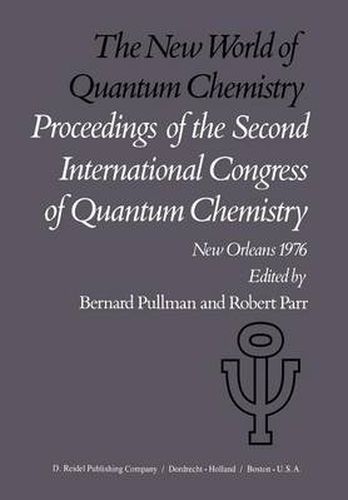Readings Newsletter
Become a Readings Member to make your shopping experience even easier.
Sign in or sign up for free!
You’re not far away from qualifying for FREE standard shipping within Australia
You’ve qualified for FREE standard shipping within Australia
The cart is loading…






This title is printed to order. This book may have been self-published. If so, we cannot guarantee the quality of the content. In the main most books will have gone through the editing process however some may not. We therefore suggest that you be aware of this before ordering this book. If in doubt check either the author or publisher’s details as we are unable to accept any returns unless they are faulty. Please contact us if you have any questions.
Bernard PULLMAN During a long period organic chemistry was one of the pre ferred field of exploration for many quantum chemists. It still remains of major interest for a number of them, but altogether it seems as if the center of gravity of the quantum molecular theories became displaced towards different horizons. The dis placement seems in fact to occur in two directions. On the one hand, we see a prominent development of very refined computations for relatively small and frequently inorganic molecular systems with the view of a better and better reproduction of their obser vable properties and thus a better understanding of the fundamen tal principles governing the electronic structure of molecules. On the other hand, there is a no less prominent development of frequently also no less refined computations towards the study of molecular systems which because of their dimensions or the com plexity of the questions which they raise go beyond the usual treatment of organic molecules. These later studies involve in particular the penetration of quantum-mechanical concepts and me thods into the realm of biochemistry, biophysics, and pharma~olo gy. It so happens that because of the nature of the problems in volved this penetration has taken up a double aspect.
$9.00 standard shipping within Australia
FREE standard shipping within Australia for orders over $100.00
Express & International shipping calculated at checkout
Stock availability can be subject to change without notice. We recommend calling the shop or contacting our online team to check availability of low stock items. Please see our Shopping Online page for more details.
This title is printed to order. This book may have been self-published. If so, we cannot guarantee the quality of the content. In the main most books will have gone through the editing process however some may not. We therefore suggest that you be aware of this before ordering this book. If in doubt check either the author or publisher’s details as we are unable to accept any returns unless they are faulty. Please contact us if you have any questions.
Bernard PULLMAN During a long period organic chemistry was one of the pre ferred field of exploration for many quantum chemists. It still remains of major interest for a number of them, but altogether it seems as if the center of gravity of the quantum molecular theories became displaced towards different horizons. The dis placement seems in fact to occur in two directions. On the one hand, we see a prominent development of very refined computations for relatively small and frequently inorganic molecular systems with the view of a better and better reproduction of their obser vable properties and thus a better understanding of the fundamen tal principles governing the electronic structure of molecules. On the other hand, there is a no less prominent development of frequently also no less refined computations towards the study of molecular systems which because of their dimensions or the com plexity of the questions which they raise go beyond the usual treatment of organic molecules. These later studies involve in particular the penetration of quantum-mechanical concepts and me thods into the realm of biochemistry, biophysics, and pharma~olo gy. It so happens that because of the nature of the problems in volved this penetration has taken up a double aspect.